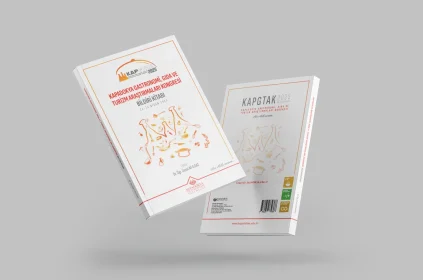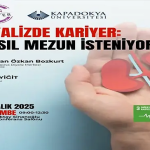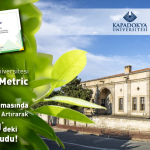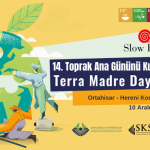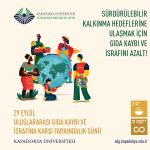This paper, prepared by Hürmet Küçüktarcı and Vesile Şenol, focuses on improving nutrition services and reducing food waste in preschool education institutions. Published by the Department of Nutrition and Dietetics, Faculty of Health Sciences, Hacettepe University, and presented at the 10th International Nutrition and Dietetics E-Congress, this study provides a practical example of nutrition and dietetics.
Mass Catering Service (MCS) is quite common today, and many kindergartens that offer full-day education receive mass catering services, particularly for lunch (1). Failure to tailor MCS appropriately to the target group can lead to increased food waste and inadequate energy and nutrient intake among those being served. Preschool children are one of the groups at risk of undernutrition (2). This study aimed to improve the presentation and preparation methods of selected menu samples served in a kindergarten to make the menus more suitable for children’s consumption, contribute to their adequate and balanced nutrition, and reduce food waste. This descriptive, cross-sectional study was conducted with 22 students (fifteen boys, seven girls) aged 2-6 years, attending Cappadocia University Montessori Kindergarten, whose body weight and height percentiles were within the normal range but who had low food intake due to various reasons (e.g., holding food in their mouths during meals, arriving late to meals and missing mealtime). In the first phase of the two-stage study, the menu items with the highest food waste were identified through the researcher’s observations and the support of institutional staff. The menu items with the highest “Food Waste Rate” were determined as Patates Oturtma (Potato Casserole), Sebzeli Makarna (Vegetable Pasta), Mantar Çorba (Mushroom Soup), Sebzeli Tavuk (Vegetable Chicken), Ispanak Yemeği (Spinach Dish), and Çiftlik Kebabı (Farm Kebab). In the second phase of the study, “Improved Menu Samples” were developed based on the students’ developmental characteristics (e.g., children in this age group have difficulty consuming large pieces of meat but find it easier to eat smaller pieces) and preferences (observations revealed that students loved eating yogurt, disliked mixed-looking dishes like Sebzeli Makarna and Çiftlik Kebabı, and their favorite soup was “orange-colored soup,” referring to Mercimek Çorba or Lentil Soup). The improved menus offered to the students were as follows: Misket Köfte ve Fırın Patates (Meatballs and Baked Potatoes), Sade Makarna ve Yoğurtlu Sebze Salatası (Plain Pasta and Yogurt Vegetable Salad), Salçalı Mantar Çorbası (Tomato-based Mushroom Soup), Haşlanmış Tavuk ve Yoğurtlu Sebze Salatası (Boiled Chicken and Yogurt Vegetable Salad), Ispanaklı Börek (Spinach Pastry), and Misket Köfte ve Yoğurtlu Sebze Salatası (Meatballs and Yogurt Vegetable Salad). The participants’ mean age was 50.09±11.75 months, and their mean body weight was 16.60±3.22 kilograms. Among the six menu samples included in the study, the food waste rate decreased significantly, and the amount of food consumed increased considerably after the menu improvement in three menus (Patates Oturtma, Ispanak Yemeği, and Çiftlik Kebabı).
The original version of this publication was prepared in Turkish. Click here to access the full text of the paper.
Küçüktarcı, H., Şenol, V. (2021). “Improving Kindergarten Menus and Reducing Food Waste: The Case of Cappadocia University Montessori Kindergarten.” Paper: 10th International Nutrition and Dietetics E-Congress, Ankara/Turkey: Hacettepe University Faculty of Health Sciences Department of Nutrition and Dietetics, 202-203.



